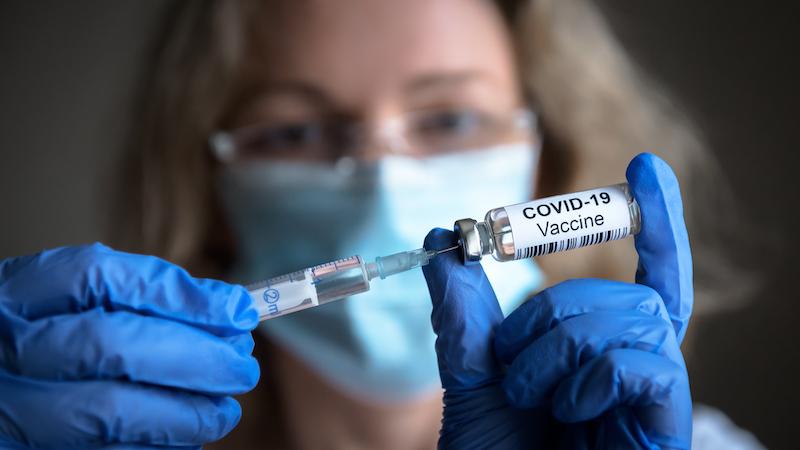Information addressing COVID-19 vaccinations seem to change almost daily, and each state has its own version of where, when and who will be vaccinated first. Despite this lack of consistency and changing guidance, there are some basic facts about the vaccine that credible experts agree on. It is important for seniors to know these facts, given their higher risk categorization and their status to receive initial vaccines.
Should We Still Be Cautious?
Even though more people are being vaccinated, each of us should continue to follow our safety practices—wearing masks, social distancing, avoiding large social gatherings, and handwashing for at least 20 seconds with anti-bacterial soap. These practices should be followed until we hear otherwise, particularly for seniors, at which time vaccination rates will be much higher and herd immunity is achieved.
What is Herd Immunity?
Herd immunity occurs when enough people become immune to a disease, whether by vaccination or natural infection, to make its spread unlikely even to those who are not themselves immune.
Are Vaccines Safe and Effective?
The vaccine trials conducted by Pfizer and Moderna each involved thousands of participants, and in both cases the vaccines were found to be both safe and 95 percent effective. These results were what caused the FDA to issue an Emergency Use Authorization (EUA) approval of the vaccine for the prevention of the coronavirus disease.
What about Variants?
Viruses exist to replicate themselves, and sometimes a “copying error” is made in a virus, resulting in a mutation. Over time, these mutations can become unrecognizable to our immune systems or the antibodies vaccines help create, which means the vaccines previous taken are not effective in combating the new strain.
As of February 2021, there are three known variants of the coronavirus: the U.K. variant, South African variant, and the Brazilian variant. These variants spread more quickly than the original COVID-19 virus, but have not yet proven to be more deadly. All three have been detected in the U.S.
Experts believe that the Moderna and Pfizer vaccines will work against these variants though at reduced levels. On January 27, 2021, Dr. Anthony Fauci, Director of the National Institute of Allergy and Infectious Diseases, said, “You could diminish the vaccine-induced antibody efficacy by a few fold and still be well within the protective range.”
However, coronavirus variants in the future may require the development of new vaccines to combat them.
How Do You Make an Appointment to Get Vaccinated?
Due to the vulnerability of the elderly, particularly in long-term care communities, residents and staff in these facilities have been the first to receive vaccines.
When you can receive a vaccine depends upon the vaccine supply and your state’s policies for distribution. The general goal is to first vaccinate those at highest risk, which includes the elderly, people with illnesses that compromise their immune system, and health care workers, firefighters, police and other first responders. However, there are variations in how states determine the priority list.
Some states are thinking big and getting creative. For example, the Texas Motor Speedway, which is located in Fort Worth, became a vast drive-thru vaccination hub. The goal is to administer 10,000 vaccinations per day.
The AARP provides information for seniors on all state vaccine distribution plans.
The best place to start would be to contact your state’s Department of Public Health. In addition, you should sign up with a health system or through a public health department preregistration site. There is nothing inappropriate about preregistering with more than one health system or preregistration site. However, when you are contacted and accept a vaccination date do not continue to make multiple vaccination appointments.
It is not recommended that you call individual physician offices as, due to the storage requirements for the vaccines, they are not likely to have it on hand. Feel free to consult with your physician about COVID-19 and any concerns you have.
How Long Does the Vaccination Last?
A week to 14 days after the second vaccine people should be protected against the severe form of COVID-19 infection. The question of how long will COVID-19 vaccine-induced immunity last, will continue to require more research.
Will protection last for years or months? Given the ability of the COVID-19 virus to create variants, some experts believe people may have to receive vaccines for the disease multiple times or annually.
Where Can I Find Out More?
The Centers for Disease Control and Prevention answers many frequently asked questions about COVID-19 vaccines.
Stay updated on the latest COVID-19 news on our blog!
Want to find out more?
If you’d like to stay up to date with Bethesda Health Group, sign up here to receive our blog and newsletters!
"*" indicates required fields
Related Articles
Want to find out more?
If you’d like to stay up to date with Bethesda Health Group, sign up here to receive our blog and newsletters!
"*" indicates required fields



